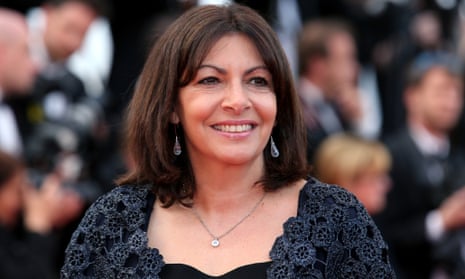A group of French feminists are saying non to the declaration of the rights of man, which they say is sexist and an outdated example of the French exception culturelle.
The Droits Humains collective is calling on France to stop leaving women out of the idea of universal liberties.
The declaration of the rights of man and of the citizen was approved by the national assembly in 1789 at the time of the French revolution.
The collective wants the French government to immediately abandon the term “Droits de l’Homme” and has launched a petition calling for “human rights for everyone”.
“It is past the time to be debating or arguing about the relevance of this change of terminology, which is self-evident,” the petition says. “This group will disband once the institutions of the French republic have made tangible changes. Otherwise, it will remain active for as long as necessary.”
The group says countries including Spain, Italy and Germany and French-speaking parts of Canada and Switzerland have already dropped use of the term.
“The expression ‘rights of man’ makes women, their issues and their battles invisible and we become more and more isolated,” Noé Le Blanc, from the collective, told Le Parisien.
The preamble to the 1789 declaration mentions “rights of man” three times, and the words “men” or “man” are used in four of the declaration’s 17 articles.
Valentine Zuber, a French specialist in history and human rights, said the term was chosen “specifically and without ambiguity to be male and exclude women”.
The 1791 French constitution made women “passive citizens” excluded from voting, as they were in Britain and throughout Europe at the time (Sweden had allowed taxpaying female members of city guilds to vote in 1718, but rescinded this in its 1771 constitution). French women got the vote in October 1945.
Critics of the petition argue that the term “Homme” when capitalised denotes mankind, as in everyone. The feminists retort that the capital H is rarely used when written and cannot be distinguished at all when spoken.
The French declaration inspired the United Nations’ universal declaration of human rights in 1948.
Catherine Coutelle, a Socialist MP, said: “France is the only country that has translated “human rights” as “rights of man” for the United Nations universal declaration.” She said it was a regrettable example of the “French exception”.
“Abandoning the use of this expression would be a step towards ending the discriminatory logic within the French language itself,” Coutelle said. She also regretted the continued and common use of titles such as Madame le Maire and Madame le President, where the masculine noun always takes the masculine article even if the holder of the position is feminine.
Paris’s Socialist mayor, Anne Hidalgo, the first woman to hold the prestigious post, insists on being called the grammatically incorrect Madame la Maire.

Comments (…)
Sign in or create your Guardian account to join the discussion